O sacrum convivium
-
Ships in 2 to 3 weeks
Details
Description
SKU: C5.3114
Composed by Colin Brumby. Text: Saint Thomas Aquinas. Vatican-style Communion motet. Communion, Corpus Christi. Octavo. Published by CanticaNOVA Publications (C5.3114).In papal Masses televised from the Vatican, we have all heard the alternating style typical of the Sistine Chapel Choir. The congregation will participate in a simple chant phrase or refrain accompanied by organ, while the choir sings their part in SATB, a cappella texture. The style is not only comfortable in its familiarity, but is also quite historical and typical of music in the major basilicas of Rome. Dr. Colin Brumby has used this format for his setting of the Eucharistic-themed prayer by Saint Thomas Aquinas: 1. O sacrum convivium! in quo Christus sumitur: / 2. Recolitur memoria passionis ejus: / 3. Mens impletur gratia: et futurae gloriae nobis pignus datur. / 4. Alleluia. // 1. O sacred banquet! in which Christ is received, / 2. The memory of his Passion is renewed, / 3. The mind is filled with grace, and a pledge of future glory is given to us. / 4. Alleluia. The refrain text, the Communion antiphon for Corpus Christi, can be sung by the congregation in Latin or English: "Qui manducat carnem meam, et bibit sanguinem meum, in me manet, et ego in eo, dicit Dominus." "Whoever eats my flesh and drinks my blood will live in me and I in him, says the Lord." The refrain is quite easy to sing and is accompanied by organ. The four verses [as indicated in the text above] are written in masterful polyphony for the unaccompanied choir, although a rehearsal reduction is given in the score. With this piece, of no more than moderate difficulty, your choir can bring the beautiful music of the Roman basilicas to your parish. Give it a try ... we're sure you'll be pleased with the results! Because the "Alleluias" are confined to the last verse, this motet can be used during Lent or Holy Week by singing just verses 1, 2 and 3.
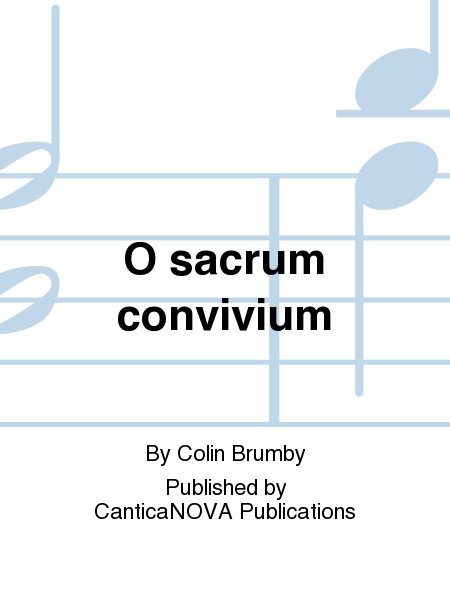
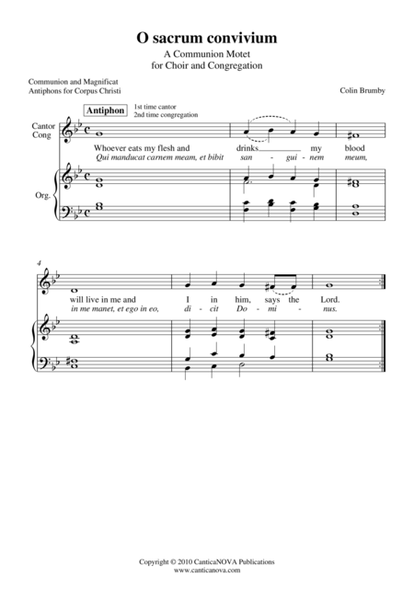
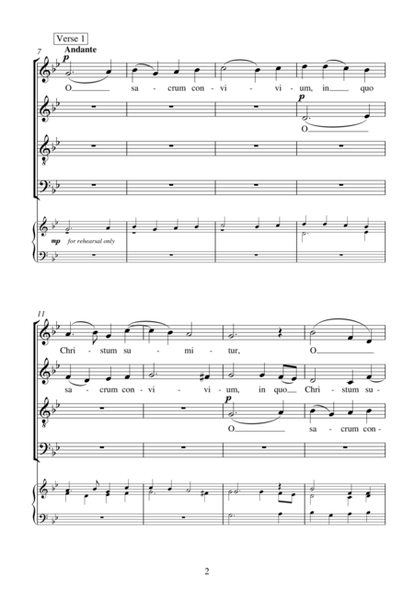
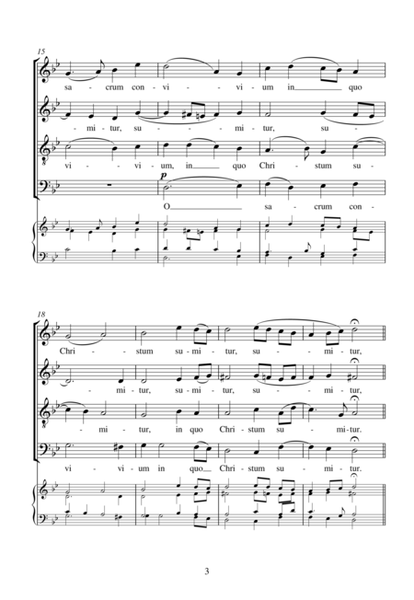
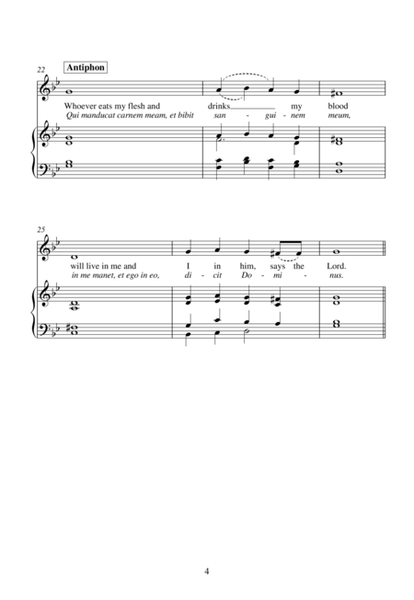
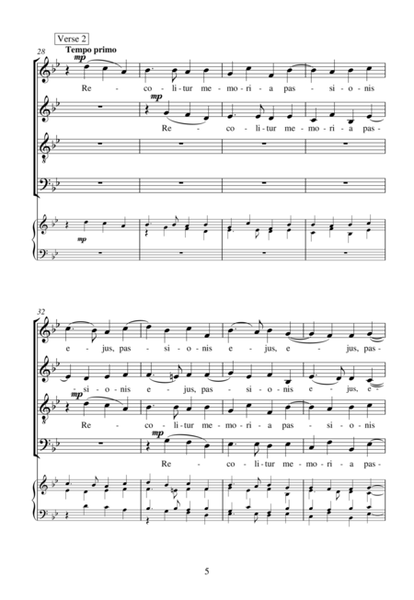
 Share
Share